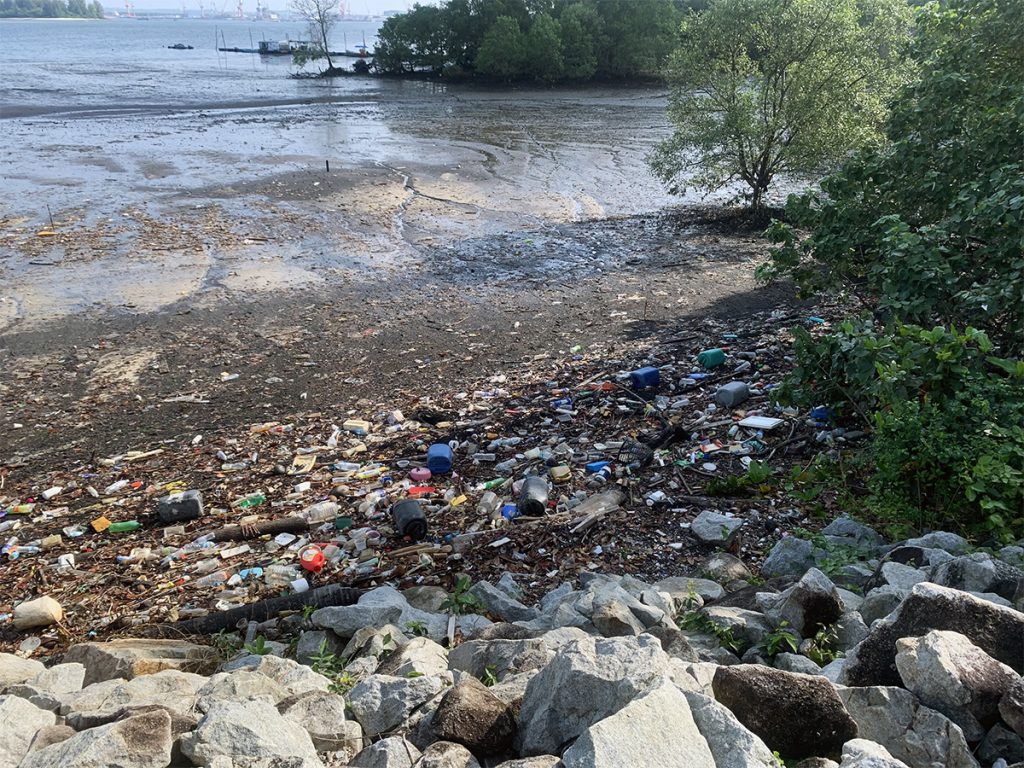In recent years, the effects of the climate crisis, from the upward creeping of global temperatures to raging floods and wildfires, have become the norm, and continued inaction threatens to bring about the irreversible consequences of global environmental collapse.

In all our discussions on climate change, it’s inevitable that the role of businesses in fighting the crisis comes into question. Individuals cannot match the resources or collective organisation required to stop the burning of the Amazon, but a company could ostensibly use their economic might to fight––or fan––the flames. With great power comes great responsibility, and it’s up to these companies that wield significant power to make a difference.
Why Is It Important for Companies to be Sustainable?
Most scientists agree that our economic models have led to unprecedented global warming, and a rise of another 1°C could be irreversibly devastating. As influential stakeholders in world consumption, companies can reshape lifestyle and business practices that are environmentally unsustainable.
Right at the top is the issue of plastic waste management; the ubiquity of single-use plastics in daily life is a blessing for convenience but a curse for the environment. In Singapore alone, a mere 4% of plastic waste was recycled in 2018, with $157 billion worth of plastic discarded after its first use, left to pile up in landfills or be blasted in incinerators.

That’s where businesses can come in. From distributing viable alternatives to plastic as part of our daily consumption, to reducing the use of single-use plastic in packaging and transport, these modifications to your business’s production process can make worlds of difference.
Pollution is another consequence of unsustainable business practices. The effects run the gamut of the environment; water bodies are tainted by waste dumping and oil spills, while land is often rendered barren by poor management of industrial activities. In Singapore, perhaps what we’re most familiar with is air pollution, with the haze caused by the burning of forests to clear land for palm oil plantations a perpetual hot topic.
All this pollution can cause drastic degeneration of natural habitats and resources, representing a huge economic expense. What’s even worse is the health risks that rampant pollution brings, depriving clean water from those in need and causing respiratory issues.
Indeed, Singapore is vulnerable to climate change in more ways than one. With limited natural resources, we are particularly susceptible to energy and water scarcity brought about by fluctuating supply. Businesses should care because industrial practices make up a huge part of our global power needs, and if more energy-efficient sources are used to power these processes, it will make a huge difference both in terms of cost and environmental benefit.
What all this means is that businesses must take a more macro approach to becoming sustainable across all aspects of the business model. It is vital to stop looking at sustainability as part of the trend cycle, and devise targeted strategies to sustainable business growth.
These steps demonstrate powerful ways to change your company’s practices:
1. Integrate Waste Management into Production Process
They say that one man’s trash is another man’s treasure. When we reclaim waste materials to be re-funnelled into production, we can truly make good on that saying.
Industrial production creates staggering amounts of waste, and pursuing a circular economy can help to minimise that. This entails designing and producing products that intentionally make use of the waste material to regeneratively create more new products. What this means is that you use your materials more efficiently, saving on cost of production, and as your production process becomes self-sustaining, business growth does not outstrip the regeneration of the Earth’s finite resources, giving her a chance to regrow and flourish.
You can even work with other stakeholders to implement more responsible waste management! The possibilities are endless: Company of Good member Savour chose to partner with startup UglyFood to save ‘imperfect’ fruits and vegetables from the landfill, while Harvey Norman saw an opportunity to help consumers recycle their end-of-life digital products, dotting E-waste bins all over the island to collect and repurpose Singaporean’s old devices.

2. Keep Supply Chains Local
As supply chains are increasingly globalised, aviation and global transport have become a major emitter of greenhouse gases. By keeping production at home, your products travel merely from Jurong to Ang Mo Kio, instead of hopping from port to airport and then the customer.
Your carbon footprint will be lowered significantly, and transport costs and geopolitical risks to supply are also reduced. What else? You will be supporting the local economy (through a difficult period, no less!), and injecting a dose of unique local flavour that is sure to draw customers to your product.
3. Switch to Renewables to Power the Production Process
Admittedly requiring initial capital expenditure, this is another investment that will prove valuable in the long run. Think about it: you’d be spending on the infrastructure now to produce power indefinitely into the future, rather than spending over and over on non-renewable, polluting fossil fuels.
Give it a year or two, and your investment will eventually pay for itself. It’s cost-effective, and you’ll make a huge difference in reducing carbon emissions simply based on the sheer scale of business production. Not only are you making a real change, you can set a precedent for other companies to do the same, and your consumers can buy easy knowing that yours is a company that takes climate change seriously.
4. Choose Energy-Efficient Alternatives for the Office
Similarly, opting for energy-efficient office design and equipment upholds sustainability in your business, integrating climate consciousness into every aspect of your operations. Businesses can also encourage sustainability in the office by providing easily accessible recycling bins, creating an environment where employees can prioritise eco-friendliness and sustainability as a key part of work life.
This is certainly the case of CDL, who go far beyond exploiting sustainability as a marketing gimmick to prove their chops. This three-time Champion of Good believes in starting sustainability at the source, from creating enduring supply chains to encouraging employees and partners to champion the cause. Not only does this result in a greener environment for all, it has allowed CDL to look long term and ensure their business longevity as well.

5. Create a Dedicated Auditing Team
Finally, it’s essential to have someone to keep track of your environmental goals. The kind of large-scale upheaval our systems need will take time and must be constantly refined. A dedicated team can focus on measuring your
progress and optimising your approach as new technologies and methods of production are constantly being developed––they’ll help you stay on top of your game.
By practising rigorous and transparent sustainability reporting, you’d show the world that you’re committed to the cause, impressing regulators, investors and consumers alike. These constant audits make sustainability changes measurable against targets and forecasts.
While sustainability won’t be achieved in a day, every little step counts. Ultimately, human endeavour can bring hope amidst calamity, and every business’s small steps up that hill will culminate in success at the top. Our choices for sustainability today determine the future of our businesses and our planet. In other words: the world could end tomorrow, but it’s on us to make sure that it won’t.
Company of Good connects organisations to do good strategically, sustainably and impactfully. Find out how your company can get involved at www.thecompanyofgood.sg/.




















